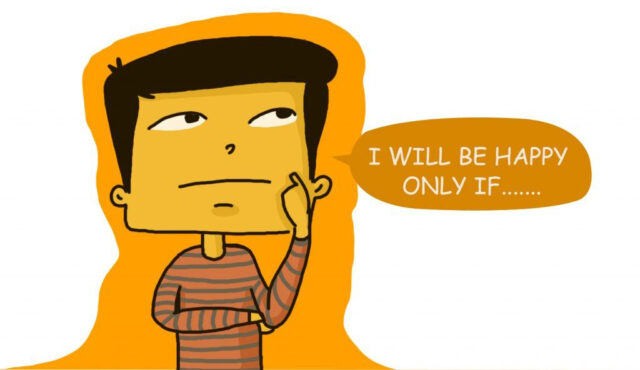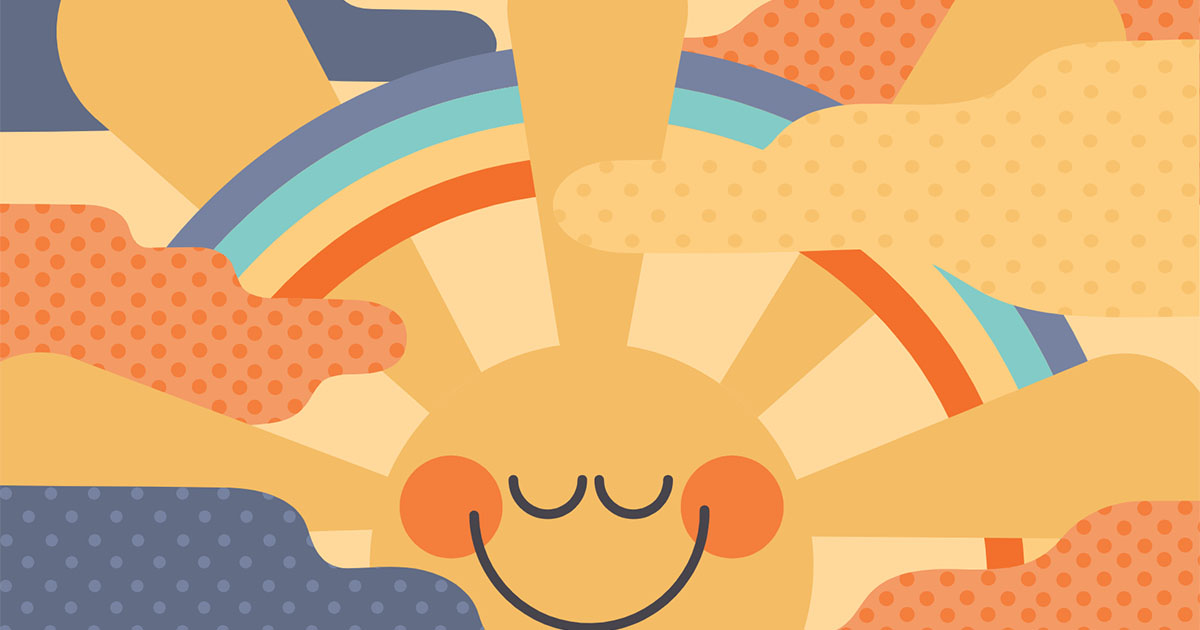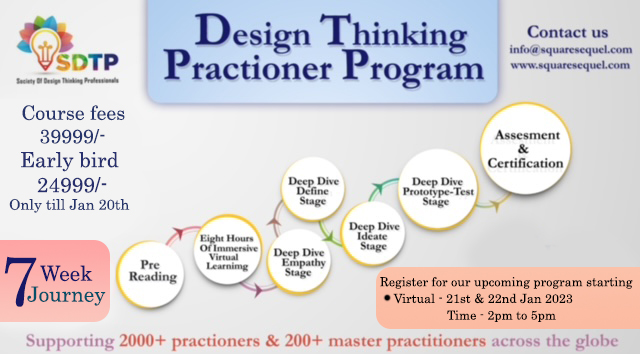There once was a wealthy man, Ajay, who lived lavishly in a city. He was a successful entrepreneur and he had everything he needed. However, he was always troubled and agitated. He went to a Hermitage one day to visit a sage in a nearby village. Ajay explained his situation to the sage, saying that he has everything he needs, still, nothing made him happy.
When the sage heard his concern, he responded, “Come back tomorrow, and I’ll show you how to live this life happily.” The next day, Ajay reached the Sage’s Hermitage at the decided time. He noticed the sage searching for something in the bushes outside his hut.
He asked curiously, “Are you looking for something? Please allow me to help you!” The sage looked at him and said, “I had a ring, and I think I misplaced it somewhere.” Hearing this, Ajay began looking for the sage’s ring along with him. When they couldn’t find the ring after a long search, he asked the sage, “Where were you when you had it last?”
I was inside the hut at that time, however, there is no light inside the hut right now, so I started looking for it outside. Ajay scratched his head in confusion, and asked the sage, “I do not understand! If you misplaced it inside the hut, then why are you looking for it outside?
The sage looked at him with a smile and said, “It is the solution to your problem!”
We often turn to people, money, vacations, or future endeavors in the hope of finding happiness in them. It might be the other way around, we might have everything we could hold, however, happiness seems to be a lost treasure. We must remember that the moment we depend on the materialistic world for our happiness, we would never find that actual feeling of happiness.
The entire sea of happiness lies within ourselves, and we keep looking for it outside with a spoon in our hand. The journey of self-discovery begins with finding the answers within, however, we end up looking up to others for it. We are the creators, masters, and commanders of our happiness, and dialing within is the only solution to living a happy life.
Since we are barely aware of happiness, and what it takes to be happy regardless of any situation. This article will help us all understand happiness better, with a new, and interesting angle.
What is Happiness?

This question has kept people curious for centuries, and now science too has started participating in the debate. The COVID-19 pandemic has turned the tables for every individual walking this earth. The pandemic and a gradual rise in the ratio of unhappiness among people have made researchers and scientists find answers in science.
According to research, happiness is a balance of how content you are with your life (for example, finding significance in your work) and how good you feel daily. Both of them are rather stable—that is, our lives vary and our moods fluctuate, but our overall happiness is mostly controlled by genetics. The good news is that this can be alleviated with constant effort.
Consider it like weight: If you eat what you want and exercise as much as you want, your body will eventually settle at a specific weight. However, if you eat less or exercise more than you’d like, your weight will adapt proportionately. If your new diet or exercise routine becomes a part of your daily routine, you’ll be able to maintain your new weight. If you resume your previous eating and exercise habits, your weight will return to where it began.
We must constantly try to keep our happiness in check and proper balance. We all can control the way we feel, and a constant practice of creating happiness for ourselves can build long-term healthy habits to live a content and fulfilling life.
What are the Myths about Being Happy?

We have a way of delaying our happiness or letting our happiness depend on some event or a specific moment. The question is, why can’t we be happy in the current moment? Why do we have to wait and build our expectations to some particular point? We all have grown up with some myths about happiness, and it is the reason we block the way to happiness entirely. Here are some myths about happiness.
It Isn’t About Feeling Good All the Time
Skeptics have frequently questioned if someone who consumes cocaine daily is “happy.” If we only wanted to feel happy all of the time, the answer would be “yes.” A recent study suggests that a composed mood is better for your mental health than a mood in which you routinely reach enormous heights of happiness—after all, what rises must fall.
Moreover, when people are asked what makes their life worthwhile, they rarely mention their mood. They are more likely to mention meaningful items in their lives, such as their profession or relationships. Recent research also suggests that focusing too much on trying to feel good all of the time will erode your ability to feel good at all—in other words, no amount of feeling good will satisfy you because of what you anticipate (all of the time) is physiologically impossible for most people.
It Isn’t About Wealth or the Possessions
While it is true that living in poverty makes it difficult to be happy, money does not appear to purchase happiness. Assume you receive a $10,000 raise every year. While you’d be ecstatic in the near term, it’d only be a matter of time before your expectations shifted to accommodate your new budget. You’ll be just as delighted as you were before the raise in no time!
This remains true for new houses, new vehicles, new electronics, and all of the other material objects that people want. The only time this rule does not apply is when you spend your money on experiences with other people. For example, if you spend an extra $10,000 per year on weekend excursions to new and exciting areas with your friends or family, you might be happy. However, this is not a common way for people to spend their windfalls.
It Isn’t About Finding the Ultimate Destination
When it comes to discussions of happiness, the old proverb “Are we there yet?” is often used, as though a person treads the trail of happiness and ultimately “gets there.” Contrary to popular opinion, happiness does not come easily unless you are one of the lucky few who won the genetic lottery and are inherently happy. Most known approaches for becoming happier—for example, keeping a gratitude journal—are habits rather than one-time occurrences, and most life events that make us joyful in the near term, such as getting married or promoted, diminish over time as we adapt to them.
This is the reason when Ajay went to the sage, he had everything he could ever imagine, still, happiness was missing in his life. He was finding his happiness in his possessions, lifestyle, and outer world. The sage opened his eyes to the concept of happiness and made him realize that happiness lies within through a little experiment.
How to Find the Path of Happiness?

When Ajay asked the sage, how would you explain the solution to my problem? The sage said to him, “You described that you have everything but happiness, right? It is because your happiness lies somewhere else, and you are finding it in the wrong place. Your happiness lies inside you, however, there are ways to light up the darkness inside and find your lost treasure.”
Just like Ajay most of us rely on materialistic things to make us happy. Luckily, Ajay found the sage to show him the right direction, who opened the gates of scientific ways to remedy his misery. The sage enlightened Ajay with specific ways of thinking and acting that impact strongly our sense of peace of mind and happiness.
Relationship
The way we build relationships with others, likewise we should build a healthy and loving relationship with ourselves. A few minutes of “me-time” will impact our well-being to an extent. Also, People who have a close friendship or more are happier. It doesn’t appear to make a difference whether or not we have a huge network of close relationships.
It appears that whether and how often we cooperate in activities and communicate our sentiments with a friend or relative makes a difference. “Active-constructive responding,” or the ability to show genuine interest in what others have to say and respond positively, is a powerful approach to deepen relationships and nurture strong emotions.
Physical Wellbeing
Regular exercise has been linked to better mental health and a reduced risk of depression. The Cochrane Review (the world’s most prominent medical study) has published a groundbreaking review of 39 papers on exercise and depression. Exercise had a “significant clinical impact” on depression, according to one of the primary conclusions. Much research, including the recent finding of a “gut-brain axis,” psychobiotics, and correlations between excessive consumption of processed foods, poor consumption of high-fiber vegetables, and sadness, are proving the ancient adage “healthy body, sound mind.
Savouring
We want to completely feel, enjoy, and extend our favorable experiences by savoring them. Since pleasant occurrences cannot always be relied on to make us happier, savoring is a terrific approach to generating a long-lasting stream of positive ideas and emotions. Savoring amplifies the positive moments in our lives.
It is the capacity to identify, appreciate, and enhance everything good that happens to us. As briefly explained by Fred Byrant, Ph.D. from Loyola University, “Savouring can counteract the inherent human propensity to focus on bad things rather than on happy things in life.”
Signature Strengths and Virtues
Experts in the new field of Positive Psychology, such as Martin Seligman, have found that the happiest people are those who have discovered their unique strengths (such as persistence and critical thinking) and are using those strengths for a purpose greater than their own goals. Our top strengths, or “Signature Strengths,” are likely to be “the strengths that matter most to us, that are most important to our identity,” according to Ryan Niemiec. Character qualities are a necessary component of human well-being.
Minimize the Effect of Hedonic Adaptation
Despite substantial recent happy or sad events or life upheavals, we humans tend to swiftly revert to a reasonably steady state of happiness. According to hedonic adaptation, our expectations and aspirations rise in lockstep as we earn more money (or eat more chocolate). As a result, there is no long-term happiness gain. We might think that if we buy a luxurious car, or get our own home, then we will be happy. However, the happiness of acquiring these things loses its magic with time.
But if we remember our first trip alone or to an exotic place with family, then it will be as fresh and refreshing as the day we experienced it. The only way to minimize the hedonic adaptation effect is to find happiness in our experiences rather than putting it into worldly things. The moment we shift the course of our happiness, it will come to find us in any case.
Be Kind
A simple way of lifting the burden from our shoulders is to be kind and compassionate to others. Volunteering or simply caring for others regularly appears to make people happier and less unhappy. Although “caring” can entail volunteering as part of a formal organization or club, it can also entail small acts of kindness, such as reaching out to a coworker or classmate who appears lonely or is dealing with a problem.
Find the Flow
We experience a euphoric condition known as “flow” when we are actively interested in achieving a goal or engaging in an activity that is demanding but well-matched to our abilities. Flow can be achieved through a variety of activities, including athletics, playing an instrument, or teaching.
Flow is a sort of intrinsic motivation, according to Mihaly Csikszentmihalyi, a pioneer in the scientific study of happiness. “You do what you’re doing mostly because you enjoy what you’re doing,” he says. If you just learn for external, extrinsic reasons, you’ll most likely forget it once you’re no longer obliged to recall what you want to do.
Spiritual Connect
There is a strong correlation between spiritual and religious activity and happiness, according to studies. Spirituality and the search for a greater purpose in our lives are inextricably linked. As psychologist Martin Seligman points out, we discover a deeper type of satisfaction through living a purposeful life.
Spirituality and prayer also allow people to participate in meditative activities. Meditation has been linked to a sense of well-being because it relaxes the body, decreases tension and anxiety, and encourages positive thinking.
Gratitude Journal
Gratitude has likely garnered the most attention of all the positive emotions researched in the relatively new study of positive psychology. The people who maintain a gratitude journal and are grateful have been demonstrated to have higher levels of positive feelings, a stronger sense of belonging, and less despair and stress.
Just like Ajay, we are learning and will continue to find ways to maximize our happiness levels. So, without a doubt, the research has assisted and will continue to assist us in increasing our happiness. But the big question remains: What type of happiness should we seek? Do we want the sum of our joyful times to be as great as possible, or do we want the average happiness of our moments to be as high as possible?
Those are two distinct concepts. Do we wish to live lives free of suffering and heartbreak, or do we appreciate those experiences? Science will soon be able to tell us how to live the lives we desire, but it will never be able to tell us what types of lives we should desire. It will be up to us to make that decision.
Source: https://www.pursuit-of-happiness.org/science-of-happiness/
https://www.michellemcquaid.com/podcast/fred-bryant/
https://www.happify.com/hd/what-is-happiness-anyway/
https://wabstalk.com/wp-content/uploads/2019/09/happiness.jpeg
https://pankeygram.org/wp-content/uploads/2022/01/Path-to-Happiness-800×445.jpg
Written By: Dr. Jimmy Jain
Edited By: Afreen Fatima
Society of Design Thinking Professionals









